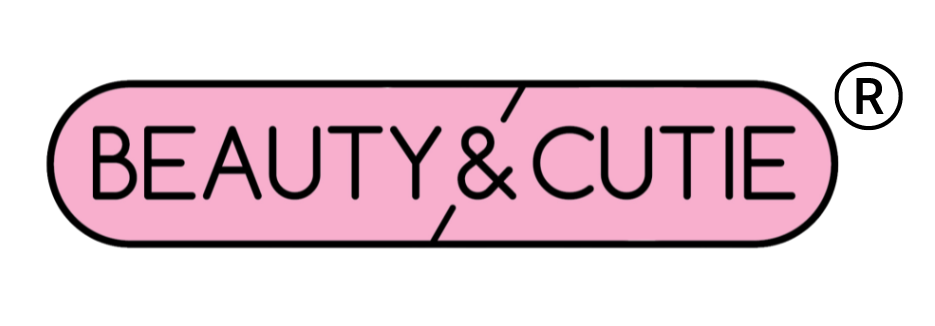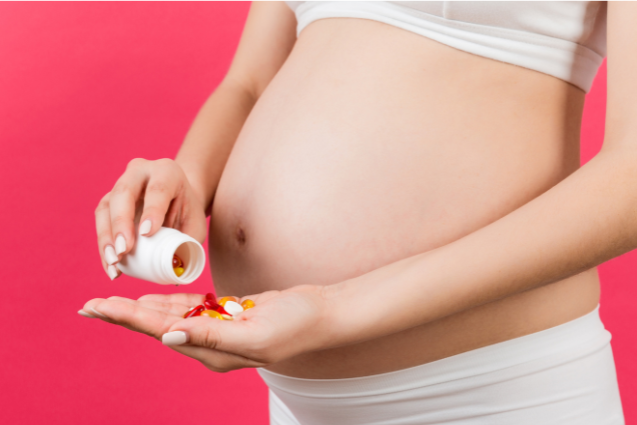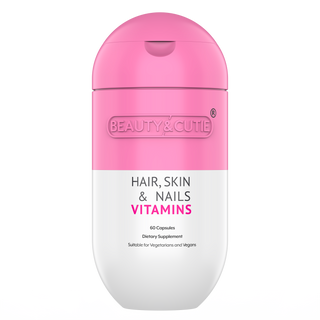As an expectant mother, you may have heard that taking prenatal vitamins can help promote hair growth. But is there any truth to this claim? The answer is yes, prenatal vitamins can help promote hair growth. However, there are some specific vitamins and minerals that are particularly important for healthy hair growth and not all prenatal vitamins contain the optimal amounts of these nutrients. In this article, we will explore the relationship between prenatal vitamins and hair growth and provide valuable information to help you choose the right prenatal vitamin for optimal hair health.
What Are Prenatal Vitamins?
Prenatal vitamins are a type of supplement specifically formulated for pregnant women. They contain a variety of essential vitamins and minerals that are crucial for fetal development, such as folic acid, iron, and calcium. Prenatal vitamins can also help support the mother's overall health during pregnancy, including her hair and skin.
One key vitamin found in many prenatal vitamins that can aid in hair growth is biotin. Biotin is a B vitamin that plays an important role in the production of keratin, a protein that makes up hair, skin, and nails. In addition to B vitamins, biotin, and other minerals that can promote healthy hair growth include vitamin D, vitamin E, iron, and zinc. It's important to note that not all prenatal vitamins contain optimal amounts of these nutrients, so it's crucial to choose a high-quality supplement that meets your specific needs.
Importance Of Maintaining Healthy Hair During Pregnancy
Maintaining healthy hair during pregnancy is important for several reasons. Firstly, during pregnancy, hormonal changes can cause hair to become thinner or fall out in some women. This can be distressing for many expectant mothers, and taking prenatal vitamins can help prevent or mitigate this issue. Additionally, healthy hair can also help boost self-confidence and improve mental well-being during pregnancy.
It's also important to note that prenatal vitamins are not a secret solution for hair growth. While they can help promote healthy hair growth, other factors such as genetics, diet, and stress levels can also play a role in maintaining healthy hair. Nevertheless, taking a high-quality prenatal vitamin during pregnancy can be a good starting point for promoting healthy hair growth and overall well-being.
Do Prenatal Vitamins Help Hair Growth?
The answer is yes, prenatal vitamins can help hair growth. By providing the body with essential vitamins and minerals, including biotin, vitamin D, vitamin E, iron, and zinc, prenatal vitamins can promote healthy hair growth in pregnant women. However, it's important to choose a high-quality supplement that contains optimal amounts of these nutrients to ensure their effectiveness.
Does Estrogen Affect Hair Growth?
Yes, estrogen plays a role in hair growth. During pregnancy, high levels of estrogen increase significantly, which can lead to thicker, fuller hair. However, after giving birth, estrogen levels drop rapidly, which can cause hair shedding or thinning. This is commonly referred to as postpartum hair loss. While taking prenatal vitamins can help support healthy hair growth during pregnancy, it's important to note that they may not prevent postpartum hair loss. Other factors, such as genetics and stress levels, can also play a role in hair loss after pregnancy. It's important to consult with a healthcare provider if you experience excessive hair loss or have concerns about your hair health during or after pregnancy.
What Are The Benefits Of Taking Prenatal Vitamins For Hair Growth?
One of the key nutrients included in prenatal vitamins that support hair growth is biotin, also known as vitamin B7. Biotin helps to strengthen hair strands, prevent hair breakage, and promote overall hair health. It also aids in the production of keratin, the protein that makes up our hair, skin, and nails. Additionally, prenatal vitamins contain folic acid, which is essential for healthy cell growth and development. A deficiency in folic acid can lead to hair loss, making it a crucial component in supporting hair growth.
Iron is another important nutrient found in prenatal vitamins that supports hair growth. Iron plays a vital role in transporting oxygen to cells throughout the body, including hair follicles. When hair follicles receive adequate oxygen, they can produce stronger, healthier hair strands.
Lastly, prenatal vitamins contain vitamin D, which is essential for healthy hair growth. Vitamin D helps to promote hair follicle growth and can also prevent hair loss.
How Long Does It Typically Take For Prenatal Vitamins To Show An Effect On Hair Growth?
The answer to this question varies from person to person. Some women may notice a difference in hair growth within weeks of starting prenatal vitamins, while others may take months to see any changes. It is important to keep in mind that hair growth is a slow process, and it may take some time for any changes to become noticeable.
Prenatal vitamins typically contain a combination of vitamins and minerals, including biotin, iron, and folic acid, which are essential for healthy hair growth. Biotin is known for its ability to strengthen hair, while iron helps to increase oxygen and nutrient supply to the hair follicles. Folic acid also plays a role in healthy hair growth by improving cell division.
While prenatal vitamins can promote healthy hair growth, it is important to speak with your healthcare provider before starting any new supplement regime. Your healthcare provider can help determine the right dosage and ensure that you are not taking any vitamins or minerals that may be harmful to you or your baby.
Are There Any Risks or Side Effects Associated With Taking Prenatal Vitamins For Hair Growth?
Although prenatal vitamins are generally safe for pregnant women, there are potential risks and side effects to consider. Taking high doses of certain vitamins, such as vitamin A, can be harmful to both the mother and the baby. It is important to follow the recommended dosage on the label or as prescribed by your healthcare provider.
Some women may also experience side effects from taking prenatal vitamins, such as constipation, nausea, or upset stomach. If you experience any of these symptoms, speak with your healthcare provider about adjusting your dosage or finding an alternative supplement.
Other Alternatives For Promoting Healthy Hair During Pregnancy
While prenatal vitamins can have a positive effect on hair growth, there are other alternatives for promoting healthy hair during pregnancy. One popular option is hair, skin, and nails vitamins, which contain a variety of vitamins and minerals that promote healthy hair growth, such as biotin and vitamin C.
These vitamins can also help to improve the health of your skin and nails, making them a great addition to your overall beauty routine.
However, it is important to note that hair, skin, and nails vitamins are not specifically formulated for pregnant women, and some may contain ingredients that could be harmful to your baby. It is always best to speak with your healthcare provider before starting any new supplement regime.
Prenatal Vitamins vs Hair, Skin and Nails Vitamins
While there are many vitamin supplements on the market that promise to enhance your hair, skin, and nails, it's important to note that they may not be suitable for expectant mothers or pregnant women. Prenatal vitamins are specifically formulated to support the health and development of both the mother and the growing fetus.
Prenatal vitamins typically contain higher levels of folic acid, iron, and calcium than regular multivitamins. Folate is especially important during early pregnancy as it can help prevent birth defects in the baby's brain and spine. Iron is essential for healthy blood flow, while calcium is important for the development of strong bones in both the mother and the baby.
In contrast, hair, skin, and nails vitamins may contain higher levels of biotin and vitamin C, which can promote healthy hair growth and improve the health of your skin and nails. However, these vitamins may not provide the necessary nutrients for a healthy pregnancy.
Ultimately, whether you choose to take prenatal vitamins, hair, skin, and nails vitamins, or both, it is important to consult with your healthcare provider first. They can help you determine the appropriate dosage and ensure that the vitamins you are taking are safe for you and your baby.
Are There Any Foods That Should Be Avoided While Taking Prenatal Vitamins For Hair Growth?
It is important to note that excessive amounts of certain vitamins and minerals can be harmful to your baby's development. For example, high doses of vitamin A can lead to birth defects and liver toxicity. Therefore, it is important to follow your healthcare provider's recommendations regarding vitamin and mineral intake.
In terms of specific foods to avoid, it is best to limit your intake of certain seafood, such as shark, swordfish, and king mackerel, due to their high levels of mercury. Mercury can be harmful to your baby's developing nervous system, and can also affect hair growth.
Other foods to avoid include unpasteurized dairy products, raw or undercooked meats, and deli meats, which may contain harmful bacteria. Additionally, it is important to limit your intake of caffeine and alcohol, as they can also affect your baby's development and hair growth.
Conclusion
In summary, while hair, skin, and nails vitamins may promote healthy hair growth, prenatal vitamins also do and are specifically designed to provide the necessary nutrients for a healthy pregnancy. It is important to consult with your healthcare provider before taking any supplements, as excessive amounts of certain vitamins and minerals can be harmful to your baby's development. Additionally, it is important to avoid certain foods that may contain harmful bacteria or high levels of mercury, caffeine, and alcohol. By following these guidelines, you can ensure a healthy pregnancy and promote healthy hair growth.
Final Thoughts
Feeling beautiful and confident shouldn't have to be a challenge. Beauty and Cutie has the answer. Our revolutionary supplement provides essential vitamins, minerals, and amino acids that not only promote optimal health of your hair, skin & nails but also helps you feel great in them. Get ready for maximum confidence with Beauty and Cutie's effective formula!
Sources
- https://www.plannedparenthood.org/learn/pregnancy/pre-pregnancy-health/what-are-prenatal-vitamins
- https://www.ncbi.nlm.nih.gov/pmc/articles/PMC3390338/
- https://health.clevelandclinic.org/is-biotin-as-good-as-advertised-for-your-hair-loss/
- https://www.mayoclinic.org/healthy-lifestyle/pregnancy-week-by-week/in-depth/pregnancy-nutrition/art-20043844
*These statements have not been evaluated by the Food and Drug Administration. This product is not intended to diagnose, treat, cure or prevent any diseases.


